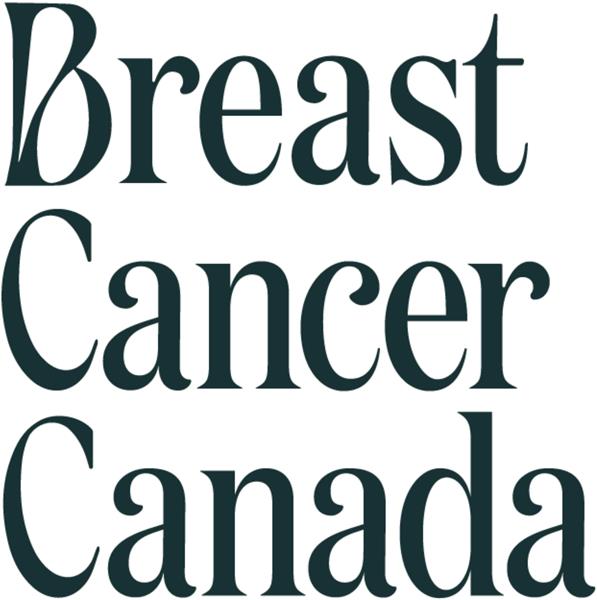- Place an order, or for other inquiries:
- 416-923-3567 ext. 3325
- content@newsmediacanada.ca
New Survey Reveals 94% of Canadians Back Earlier Screening

A Call for Equitable Access to Breast Cancer Care Nationwide
TORONTO, ON –(COMMUNITYWIRE)– Today, Breast Cancer Canada (BCC), a national charity dedicated to saving lives through breast cancer research, released new data revealing an overwhelming national demand for earlier breast cancer screening. The survey also highlights the deep impact of delayed screening and the need for more equitable access to breast cancer care across Canada.
Key Findings
- Consensus for Early Screening – An overwhelming 94% of Canadians believe breast cancer screening should start at age 40, recognizing the importance of early detection.
- Generational Shift in Attitudes – The survey indicates a generational shift in attitudes toward breast cancer screening. Younger Canadians (ages 18-34) are particularly supportive, with 84% indicating they would get screened at age 40 if eligible, compared to 22% of the mid-generation (ages 35-40).
- Inequities in Access to Care – 88% of Canadians believe that where you live in Canada significantly affects your access to quality breast cancer care. This sentiment is particularly strong across the country, highlighting the need for more equitable access to screening and care nationwide.
Overlooking Routine Breast Cancer Screenings
While there is overwhelming support for access to breast cancer screening starting at age 40, there is still more work to be done. Despite recognizing the importance of early detection, many Canadians are not getting screened. Over 27% of Canadians reported that neither they nor a loved one has ever been screened for breast cancer. This gap underscores the need for continued education to ensure that awareness translates into action. Early screening is crucial for identifying breast cancer in its earliest stages, improving treatment outcomes, and ultimately saving lives.
The Impact of Delayed Detection
Carie-Anne Dunscombe’s story brings a human face to the statistics. At 47, Carie-Anne was denied a mammogram despite presenting with a lump and rash. It wasn’t until a visit to the emergency room at Credit Valley Hospital that she finally received a mammogram and was diagnosed with stage 3 breast cancer. Tragically, she passed away just a year later, at the age of 48. “If my mom had been screened earlier, her breast cancer could have been caught in time,” shares her daughter, Megan Dunscombe. “Routine screening wasn’t available for my mom at age 40. The delays in her diagnosis not only robbed her of the chance for early treatment but also devastated our family. Early detection isn’t just a medical term—it’s a lifeline.”
Needed Change in National Guidelines
This growing consensus comes at a critical time, as medical and industry experts continue to call on the Canadian Task Force on Preventive Health Care to lower national breast cancer screening guidelines, which currently recommend screening starting at age 50.
Kimberly Carson, CEO of Breast Cancer Canada, emphasizes, “Now more than ever, the urgency for updating national screening guidelines is undeniable. This is about more than changing a number—it’s about transforming the breast cancer landscape in Canada to save lives.” Carson adds, “Encouraging vigilance and pushing for early detection represent vital steps toward ensuring that every Canadian, regardless of age or location, has access to the care they need.”
About Breast Cancer Canada
Breast Cancer Canada is a national charity dedicated to saving lives through breast cancer research. With a focus on precision oncology (personalized care), it is the only national breast cancer organization in Canada with a clear mandate to fund research, advocate, and educate on the progress of new research evidence. The organization receives no government funding; all research is funded through the generosity of donors. For more information, visit breastcancerprogress.ca.
About the Survey
These are the findings of a study/survey conducted by Breast Cancer Canada from August 28 to 30, 2024 among a representative sample of 1505 online Canadians who are members of the Angus Reid Forum. The survey was conducted in English and French. For comparison purposes only, a probability sample of this size would carry a margin of error of +/- 2.5 percentage points, 19 times out of 20.
FACT SHEET
Angus Reid / Breast Cancer Canada: August 2024 Survey Findings
Summary of findings for an omnibus survey conducted for Breast Cancer Canada from August 28-30, 2024. The sample size of 1505 Canadians consisted of 771 females and 734 males.
Screening:
Almost all Canadians (94%) believe that breast cancer screening should be available to all Canadians beginning at the age of 40.
- There is a near universal agreement among Canadians that it is important for breast cancer screening guidelines to be reviewed and updated frequently (93% agree)
- 8-in-10 men (78%) under the age of 50 would be screened for breast cancer beginning at the age of 40, if eligible.
- Younger Canadians aged 18-34 overwhelmingly agree (94%) that they would get screened beginning at the age of 40, if eligible
- 73% of Canadians have not been screened for breast cancer at all
Health Equity
88% of Canadians believe that where you live in Canada significantly affects your access to quality breast cancer care.
- Atlantic Canada, Ontario and British Columbia agree more than other provinces (95%, 90%, 90%)
- Younger generations tend to agree more than older generations that where you live in Canada affects your access to care (90%, 90% versus 86%)
- Women under 50 agree more than the rest of respondents that where you live in Canada affects your access to care (93%)
83% of Canadians believe that men and women should be treated for breast cancer equally, and should have equal access to said treatments
- Women agree significantly more than men (88% versus 79%)
- Older generations agree more than younger generations that men and women should be treated equally and have equal access (55+: 89%, 35-54: 80%, 18-34: 79%)
Contacts
Media
Hana Baig
Communications, Santis Health
hana.baig@santishealth.ca
